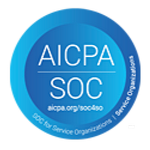
At Imunify, we’re excited to announce a pilot program for our latest product: MyImunify. This program is an opportunity for hosting providers to test a new revenue-sharing model that combines cutting-edge malware protection with a seamless upsell experience for your customers.

ImunifyEmail is an advanced email filtration solution that integrates seamlessly with cPanel's Exim mail server. Functioning as a pre-routing configuration, it intercepts emails before other routing configurations are applied.

In the fast-growing VPS hosting market, offering a solution that combines performance, security, and efficiency is essential. The CloudLinux VPS Bundle for Partners is designed to help you stand out, providing a comprehensive package with CloudLinux OS and Imunify360 for unmatched stability and protection.


Last week, we introduced a new feature in ImunifyEmail—Incoming Filtering (Beta)—enhancing protection against unwanted emails and ensuring a cleaner, more secure inbox experience. In addition to this exciting update, we’re pleased to share the latest results demonstrating the exceptional efficiency of ImunifyEmail’s outgoing spam filtering.

CloudLinux is excited to announce our Platinum Sponsorship at CloudFest 2025, this major event will gather experts in cloud, hosting, and internet infrastructure. CloudLinux looks forward to presenting our newest products and innovations to support your business.

We're excited to announce the beta release of Incoming Filtering for ImunifyEmail, expanding our robust email security to protect your users from incoming spam and malicious emails.
 We’re thrilled to announce that CloudLinux will be an Official Bronze Sponsor at the Africa Data Centers & Cloud Days (ADCD) 2025, happening on February 17-18 in Tunis, Tunisia.
We’re thrilled to announce that CloudLinux will be an Official Bronze Sponsor at the Africa Data Centers & Cloud Days (ADCD) 2025, happening on February 17-18 in Tunis, Tunisia.

We’re thrilled to announce the rollout of a new version of Imunify360, engineered to deliver significant memory and performance improvements!

We're excited to announce a significant enhancement to Imunify360's capabilities - management of ignore lists based on file hashes. This feature is designed to streamline security management across large server deployments.
For large organizations looking to maintain consistency and avoid the hassle of managing different ignore lists across their server fleet, this centralized solution is the perfect fit.

.png?width=115&height=115&name=pci-dss%20(1).png)
